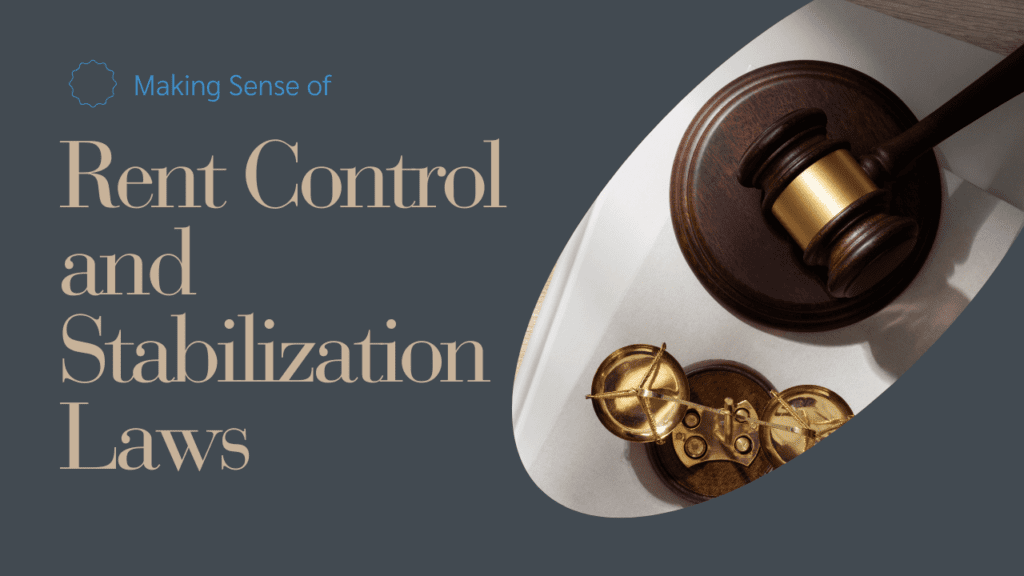
Over the last few years, there’s been a lot of talk about The Tenant Protection Act of 2019, which, among other things, established statewide rent control in California. However, that law leaves in place any local rent stabilization laws that were already on the books.
San Jose has had local rent control laws in place since 1979. These laws come first when you’re renting out a property in San Jose. If your property is covered by these rent control and stabilization laws, it will continue to be covered. If your rental property was not covered by these laws, but is now included in the statewide law, you’ll want to follow the requirements of the state law.
Here’s how to make sense of San Jose’s rent control and stabilization laws.
San Jose Rent Ordinance
The original San Jose Rent Ordinance was signed into law in 1979 to stabilize rent prices in the City of San Jose. It’s sometimes called the Apartment Ordinance. The Ordinance established that, in San Jose, rent could only be raised once in a 12-month period.
It also set forth limitations on the amount that rent may be increased each year. This capped rental increases on those properties that are covered under the law. All landlords are required to provide notice of a rental increase to the City of San Jose. The law also established a dispute resolution process for tenants and landlords.
According to San José Municipal Code section 17.23.310, a landlord may only raise rent for a covered rental unit by 5 percent of the rent charged in the preceding twelve months.
Is Your Rental Property in San Jose Covered by this Law?
The San Jose Rent Ordinance applies to all multi-family rental properties in San Jose that have three or more units. It covers all properties that received a certificate of occupancy or were offered for rent before September 7, 1979. There are some exemptions to this rule, but you’ll have to comb through Municipal Code Section 17.23.167(B) to determine whether you qualify for one of those exemptions.
Basically, your rental property is covered by the local rent control laws unless:
- You’re renting out rooms in a hotel, motel, or some other establishment serving transient visitors and not long-term tenants.
- Your rental property is in a dorm, hospital, long-term care facility, emergency shelter, or other residential service facility.
- Your property is subsidized by a government agency.
- Your building only has one or two rental units (like a duplex).
Single-family homes are exempt. New construction rental properties are exempt. The City of San Jose actually has a handy and interactive map of rent-controlled properties in the city on its website. You might find this useful.
Rent increases are also exempt from these stabilization requirements after a rental unit has been voluntarily vacated. If there’s been a lawful eviction, you can also increase the rent by any amount before you rent the home out to a new tenant.
As a property owner, you also have the right to petition to pass through costs to your tenants for the following reasons:
- Specific Capital Improvements: The total monthly amount imposed may not exceed three percent of the monthly rent charged and is not considered rent. The improvement must have been completed within 12 months prior to the filing of the petition.
- Fair Return Increase: A special permanent rent adjustment may be approved by the City when the landlord offers proof that their operating expenses exceed income.
Tenants may also file a joint petition with their landlord for a 5% increase in rent per additional occupant.
Disputes and Retaliation
 Rent control can be a touchy subject, and not all landlords have been nice about it. So, the City of San Jose has enacted a Tenant Protection Ordinance to address tenant harassment. If you violate the Tenant Protection Ordinance and a tenant is displaced, your tenant can sue for actual and exemplary damages.
Rent control can be a touchy subject, and not all landlords have been nice about it. So, the City of San Jose has enacted a Tenant Protection Ordinance to address tenant harassment. If you violate the Tenant Protection Ordinance and a tenant is displaced, your tenant can sue for actual and exemplary damages.
Tenants can bring complaints when their rent is raised that address such issues as:
- Service Reductions. If a landlord is displeased with the amount they’re able to raise the rent, they may see fit to reduce the services they provide to a tenant. This cannot happen without a corresponding decrease in rent. Tenants can request an administrative hearing if they’re no longer receiving pest control or landscaping services, for example, but their rent does not go down with the loss of those services. The tenant must submit evidence such as maintenance record requests, photographs, and/or testimony. If the claim is proven, the Hearing Officer will determine the percentage that the usability of the rental unit was reduced and the duration of the reduction. If the rent increase is unreasonable, the Hearing Officer may reduce a rent increase, order a credit against paid rent, and/or impose a permanent or temporary reduction in rent.
- Housing Code Violations. Any habitability issues, safety defects, or health issues that arise at the property will need to be addressed right away. Otherwise, the tenant can prove that you violated the San Jose Housing Code. Tenants will need to ask for a Code Enforcement Inspection. The Hearing Officer, after reviewing the case, may reduce, disallow, or reasonably condition any rent increase based on the severity of any violations.
Apartment owners may not retaliate when tenants exercise their rights around a rental increase that seems to violate the stabilization ordinance. Landlords cannot threaten to sue, evict, or terminate the tenancy of the tenant. You also cannot show up at the property to harass or bully the tenant. You cannot change locks, turn off utilities, or reduce your services. You cannot raise the rent in response to a complaint, and you cannot increase your security deposit or insist on a new charge.
We know that rent control can be confusing and frustrating. We’re here to help, whether it’s with the local San Jose stabilization laws or the statewide rent control mandate. Please contact us at South County Property Management. We serve Santa Clara County and South County, including San Jose, Campbell, Saratoga, Cupertino, Sunnyvale, Los Gatos, Milpitas, Morgan Hill, Gilroy, and neighboring areas.
